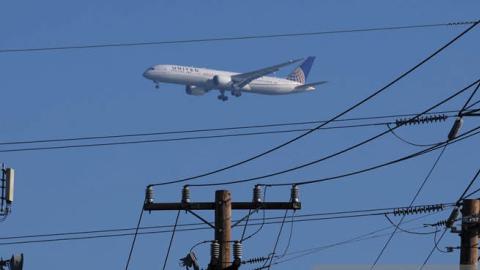In recent weeks, AT&T and Verizon have repeatedly “volunteered” to delay the use of parts of their new 5G wireless networks. “Volunteering” for one’s country can be noble, if not downright heroic. Most all war movies confirm this. But corporate “volunteering” under duress from government agencies is another matter altogether.
When a corporation says that it is “volunteering” to take a certain action, it’s rarely because shareholders or customers demand it. Instead, it’s more likely because a government official has threatened certain consequences in an unrecorded, non-public conversation if the corporation does not “volunteer.”
Consider the cases of AT&T and Verizon in recent weeks. On January 18, AT&T “voluntarily” agreed to not turn on its new 5G networks near certain airports. Verizon “voluntarily” followed suit the same day.
The choice of the same word on the same day by both companies is neither by accident nor coincidence. Both had and continue to have every legal right to turn on their 5G networks, including near airports, since last December. Alongside other companies, they collectively spent $94 billion in a recent FCC auction for the spectrum rights necessary to deploy such networks. The wireless carriers, their creditors, and their customers had every reason to expect that they would be able to put their new and expensive networks to work.
But last November, long-suppressed FAA concerns about possible interference between the new 5G networks and radio altimeters used on planes and helicopters became publicly known. And government officials were concerned.
The FAA did not have the legal authority to block AT&T and Verizon from using their networks. Nor did the White House. The FCC could have legally blocked the 5G networks, but such an action could easily have taken months, particularly if AT&T and Verizon objected. Worse still, formal FCC action to block the new networks would have been contrary to the agency’s policy of promoting American 5G deployment. Such FCC action would also have exposed the poor, frankly non-existent coordination between the FAA and the FCC—if this incident wasn’t evidence enough.
So what did the federal government do instead? Officials at the Department of Transportation and in Congress wrote letters to AT&T and Verizon asking them to delay deployment of the new service. These public missives were no doubt paired with non-public conversations from other government officials in which threats may have been made about the possible consequences to the carriers if they did not “voluntarily” back down.
The federal government has many levers of influence over highly-regulated businesses like AT&T and Verizon. If a government official wants a business to take a certain action, that action often happens. Adding insult to injury, to make sure the business does not subsequently seek to reverse its decision, the government often asks the business to publicly state that its actions are “voluntary.”
In a joint January letter to Transportation Secretary Buttigieg and FAA Administrator Dickson, AT&T and Verizon’s CEOs used a form of the word “volunteer” seven separate times. They used it five more times in an attachment. You’d be hard-pressed to find a Soviet prisoner use the word more frequently.
In free nations, businesses rarely lay out such large and consequential decisions in formal letters—let alone letters to government officials. Instead, they prefer to communicate with the public via press releases, ad campaigns, social media posts, or however else they see fit. Perhaps most importantly, businesses prefer to tell the public how their decisions benefit their customers—rather than speaking in terms of “voluntary” government benefit.
The public will never know if or how government officials threatened AT&T and Verizon to “volunteer” to delay their network deployments. Nor will they know if and whether the pair got anything of value in return. But the public, including investors and creditors, will know one thing: by “volunteering” to limit their commercial activities, AT&T and Verizon have likely foreclosed some future legal recourse.
In war movies, officers ask for “volunteers” for dangerous, often suicidal missions. Those that volunteer, often with little left to lose and little promise of reward, are often viewed as heroes. When they perish as volunteers, their heirs have no form of recourse against the government.
It’s perhaps for this very reason that there’s an old military adage: “never volunteer for anything.” At first blush, it might seem downright unpatriotic. But perhaps this saying was coined by an officer who spent too much time in Washington. Just ask AT&T and Verizon.
Read in RealClear Markets
















